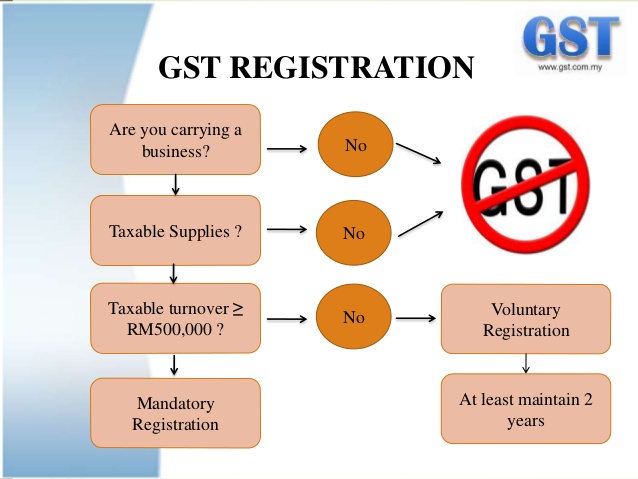How to Find the most effective GST Registration Services in Singapore Promptly
How to Find the most effective GST Registration Services in Singapore Promptly
Blog Article
From Beginning To End: The Ultimate Roadmap to GST Registration for Services Looking For Financial Security
Browsing the complexities of Goods and Solutions Tax Obligation (GST) registration is a crucial action for services pursuing monetary stability. From comprehending the fundamental concepts of GST to complying with post-registration guidelines, the process can seem discouraging in the beginning glimpse. Damaging down the roadmap into manageable steps can simplify the enrollment trip for businesses looking to improve their economic standing. Let's check out the crucial parts that comprise this ultimate roadmap and discover how each phase adds to laying a strong structure for financial success.
Comprehending GST Fundamentals
Digging into the basic principles of Product and Provider Tax Obligation (GST) is essential for acquiring a detailed understanding of its effects on organizations and the economy. GST is a value-added tax levied on most products and solutions for domestic consumption. It has changed multiple indirect tax obligations that existed in the pre-GST era, streamlining the tax obligation structure and improving ease of doing business in India. Under the GST system, both items and services are strained at a specific rate, which is identified based upon their classification. Businesses are needed to register for GST if their yearly turnover exceeds the threshold limitation established by the government. Input Tax Obligation Credit Rating (ITC) is a significant attribute of GST, permitting services to claim credit scores for taxes paid on inputs, decreasing the overall tax obligation problem. Comprehending the fundamentals of GST is essential for services to abide by tax policies, handle their financial resources efficiently, and add to the country's financial growth by joining a transparent tax obligation system.
Eligibility Requirements for Registration
As of the present laws, the threshold limit for GST enrollment is a yearly accumulation turn over of 40 lakhs for businesses running within a state, except for unique group states where the limit is 20 lakhs. In addition, certain companies are required to register for GST regardless of their turn over, such as interstate suppliers, informal taxed individuals, and companies responsible to pay tax under the reverse charge device. It is crucial for organizations to thoroughly assess their turnover and deal kinds to identify their GST registration responsibilities properly.
Records Required for Enrollment
Having satisfied the qualification criteria for GST registration, companies must now ensure they have the requisite records in position to wage the enrollment procedure effectively. The files needed for GST registration normally consist of evidence of company constitution, such as collaboration action, enrollment certification, or incorporation certification for various sorts of companies. Furthermore, services need to give papers developing the principal area of service, such as a rental agreement or power bill. PAN card of the company, as well as the identity and address evidence of promoters/partners/directors, are website link vital for confirmation functions. Checking account declarations, together with terminated cheques or a copy of the bank passbook, are needed to validate the economic information supplied during registration. Companies should have electronic trademarks all set for the accredited signature. Making sure all these files are arranged and readily offered will accelerate the GST registration procedure, making it possible for services to follow tax policies seamlessly.
Step-by-Step Enrollment Refine
Commencing the GST enrollment procedure involves a reference series of structured steps to make certain a compliant and smooth enrollment for companies. The initial step is to visit the GST site and complete the registration type with accurate information of business entity. Following this, the candidate gets a Short-term Reference Number (TRN) which is used to return to the application procedure if it's not finished in one go.
Following, all called for files according to the list provided by the GST portal requirement to be posted. These papers generally consist of proof of business identity, registration and address proofs of marketers, financial statements, and company entity's PAN card.

Post-Registration Conformity Standards

Final Thought
In conclusion, organizations looking for monetary security has to understand the essentials of GST, satisfy eligibility standards, gather necessary files, comply with the step-by-step registration procedure, and abide by post-registration guidelines - Best GST registration services in Singapore. By adhering to these helpful resources actions, businesses can guarantee conformity with tax obligation policies and maintain monetary security over time
Furthermore, specific organizations are called for to register for GST regardless of their turnover, such as interstate suppliers, casual taxable individuals, and companies accountable to pay tax under the reverse cost system.Having actually satisfied the eligibility criteria for GST registration, services must currently guarantee they have the requisite records in location to proceed with the enrollment process effectively. The files needed for GST registration typically include evidence of company constitution, such as collaboration action, enrollment certification, or incorporation certificate for various kinds of businesses. Furthermore, companies require to supply files developing the principal area of business, such as a rental agreement or electrical power expense.Beginning the GST enrollment process involves a series of organized steps to make sure a certified and smooth enrollment for services.
Report this page